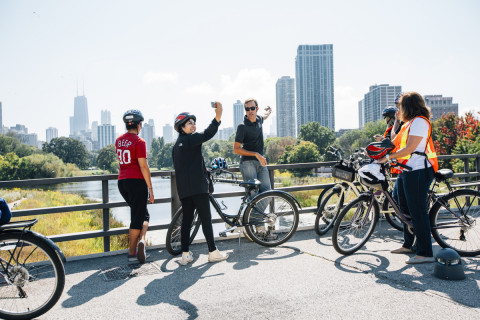
In weighing options for experiential learning, instructors should keep in mind the full range of opportunities available to them. Large-group experiences such as whole-class field trips can be exciting opportunities for a class to share an experience, but can be costly both in time and in money, especially if class time is limited and transportation would have to be chartered. In-person guest speakers (whether in the classroom or encountered somewhere in the city) offer students the chance to meet Chicagoans of different walks of life, but some guest speakers may not feel comfortable engaging with groups of students in person or prefer not to come to campus. Giving students the opportunity to pursue individualizable, self-guided experiences (either solo or in small groups) can be a great way to encourage student initiative and "flip the classroom" as they share the learning outcomes from their fieldwork, but need to be carefully structured to ensure that they are equitable and don't over-burden students financially or put them in situations where they feel unsafe.
The various accordioned categories (below) offer specific suggestions for "reframing" popular types of experiential learning into individualized, collaborative-learning, and remote formats. Many of these ideas were developed and/or field-tested by instructors during the COVID-19 pandemic. While no longer demanded by public health conditions, many continue to have value as alternative ways to structure learning with the city into classes, whether to accommodate individual students/guests or to "change things up" for a particular course or assignment. The sidebar to the left offers links to additional resources, including equipment Chicago Studies can make available for interested instructors. Email us at chicagostudies@uchicago.edu to request any equipment for course-related use, or with any questions about this content.